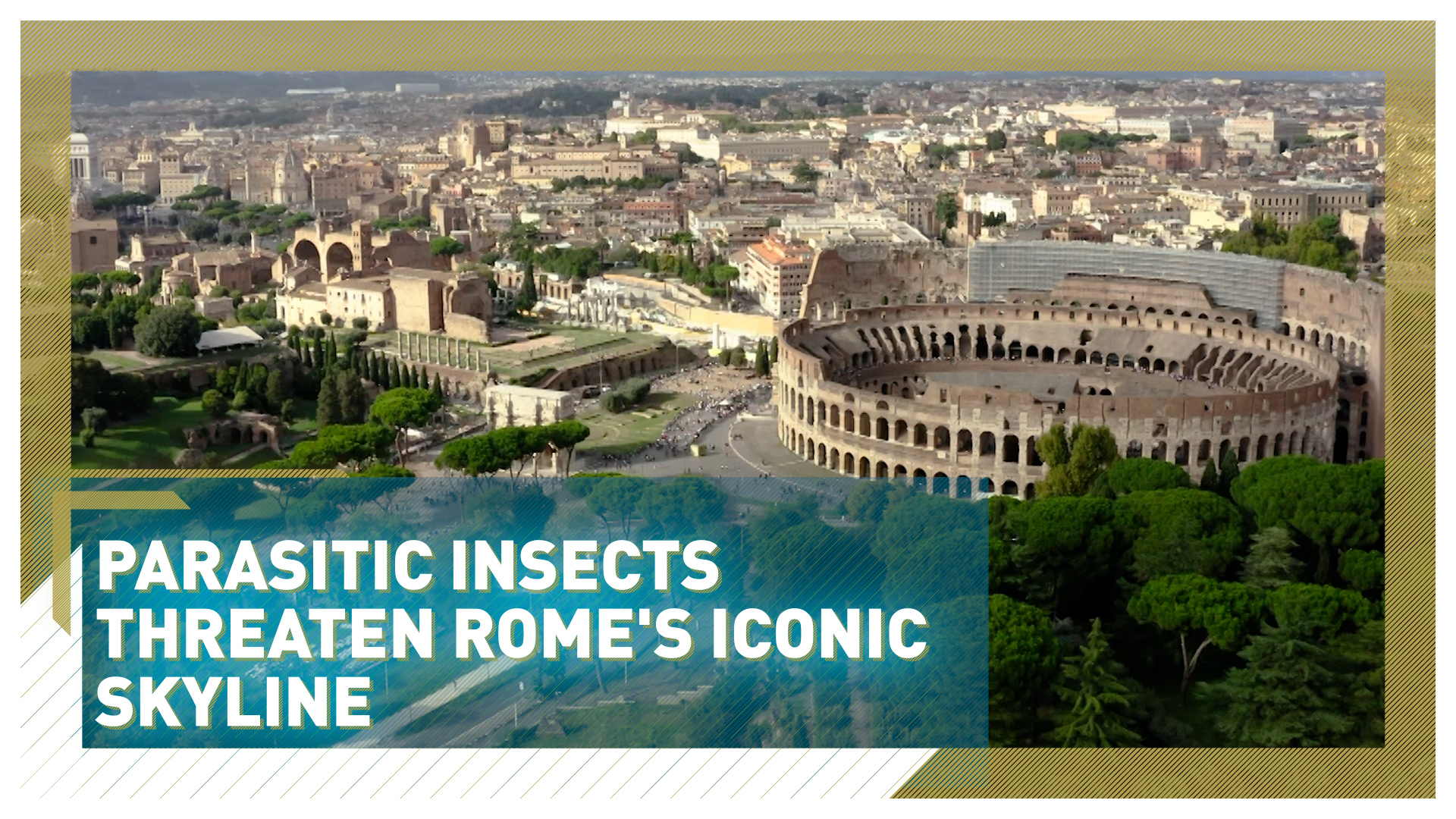02:21

Experts say Rome's landscape could change dramatically in the next three years as the city's famous pine trees are attacked by a plague of parasites.
Michele Ricceri is a landscape architect who works with Rome's stone pines and says the severity of the situation is yet to be understood. "I think that it is a really serious problem. The consequences that we're seeing are so rapid that when we realize the gravity of the situation, it will be too late."
The insect is called Pine Tortoise Scale, it sucks the sap of the tree relentlessly and secretes a sticky mold that blocks photosynthesis. An infested tree usually dies within three years.
READ MORE
Can we eradicate poverty?
The Taliban is 'the people's choice'
The spoon revolutionizing meals in space
Experts say it's a race against time to preserve the city's panorama and history as some stone pines are up to 150 years old and 40 meters tall.
Enrico Chiarot is an agronomist involved in the trees' treatment program. "The landscape will change, this is the concrete risk because the trees with advanced damage are destined to die," he said.
Ricceri added: "It will be like a desert. Here it is cool because there is the pine forest, imagine if it was gone how hot it would be."

The insect, called Pine Tortoise Scale, sucks the sap of the tree and secretes a sticky mold that usually kills a tree within three years. /CGTN Europe
The insect, called Pine Tortoise Scale, sucks the sap of the tree and secretes a sticky mold that usually kills a tree within three years. /CGTN Europe
The insects originated in North America, and it's believed they arrived in Italy via imported plants from the Bahamas.
"The problem is that here in Italy there is no predator to help combat the parasite and due to the climate here, there is no break in the reproduction cycle," said Ricceri.
All hopes are riding on a recently approved pesticide treatment. Endotherapy is a type of drip, which is inserted into the base of the tree with a syringe and then the insecticide is spread to the rest of the tree.
However, the invasive treatment isn't a long-term answer and researchers are trying to find a biological solution, such as a predatory parasite.
The government has pledged half a million dollars to tackle the problem, but experts say much more is needed.
"We have to move quickly, politically and legislatively to mobilize as much money as possible because this is an investment for the future, to preserve the pines for our great grandchildren," said Chiarot.

